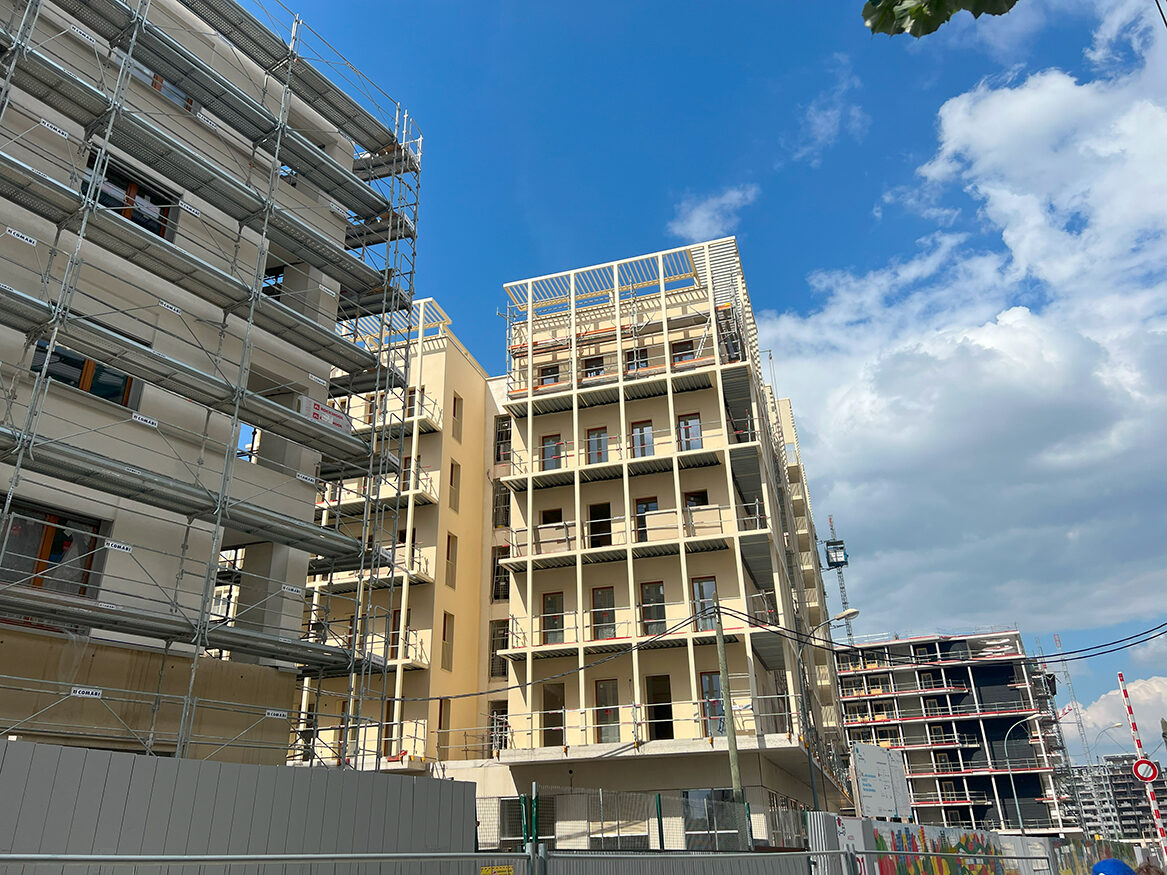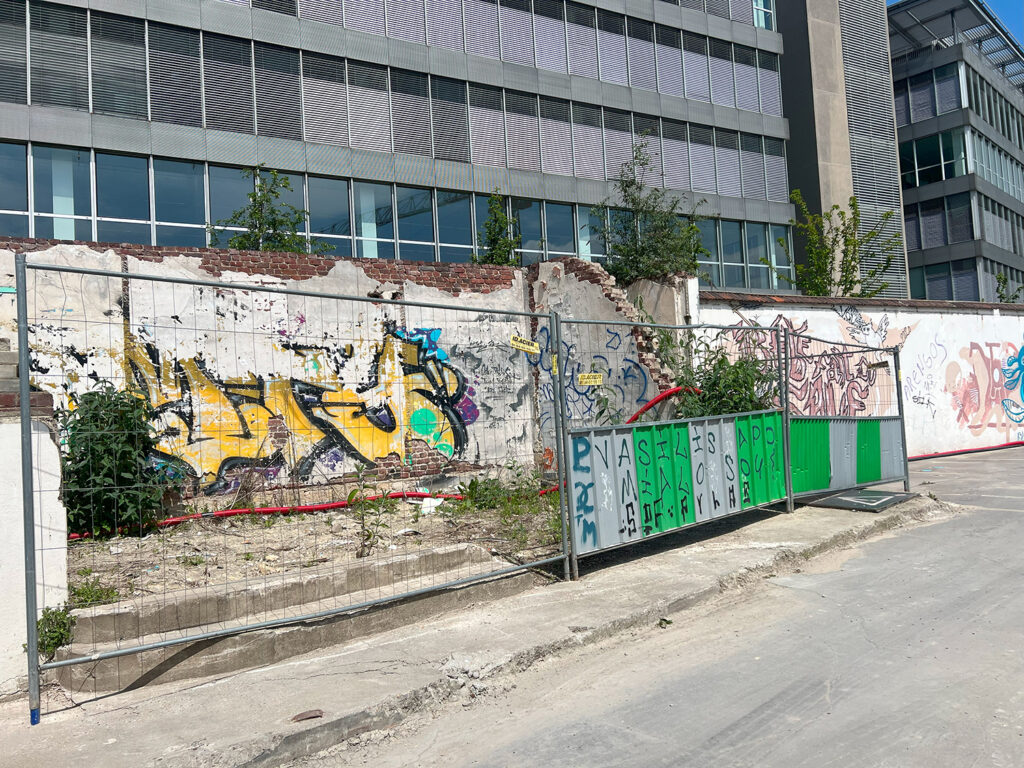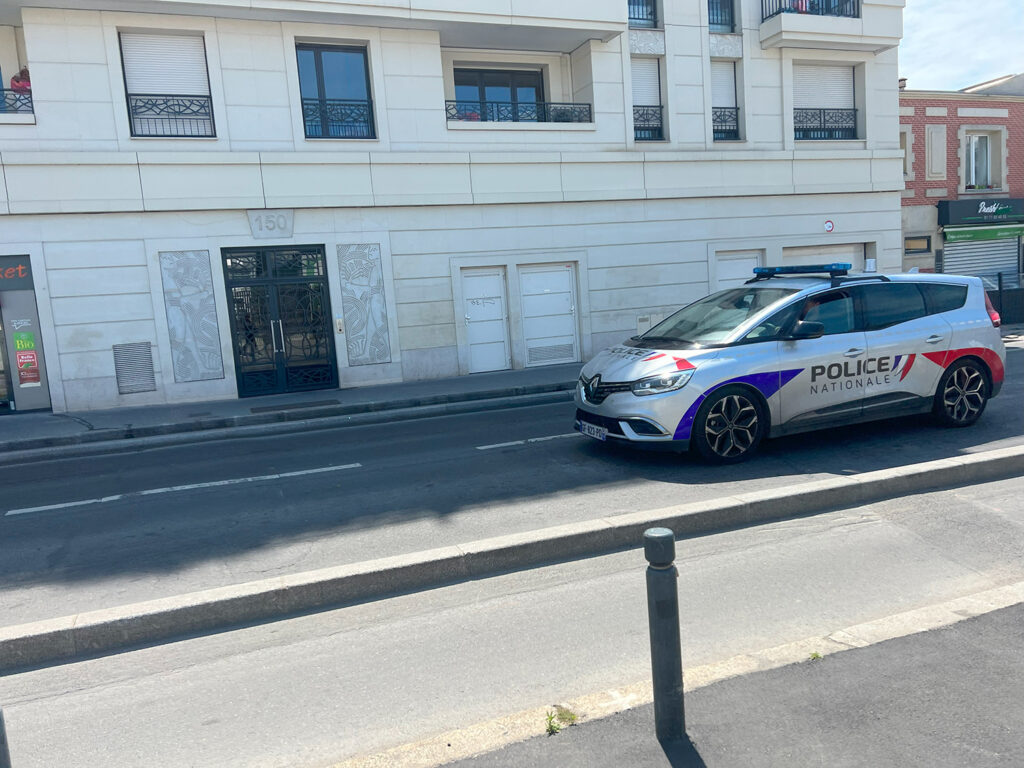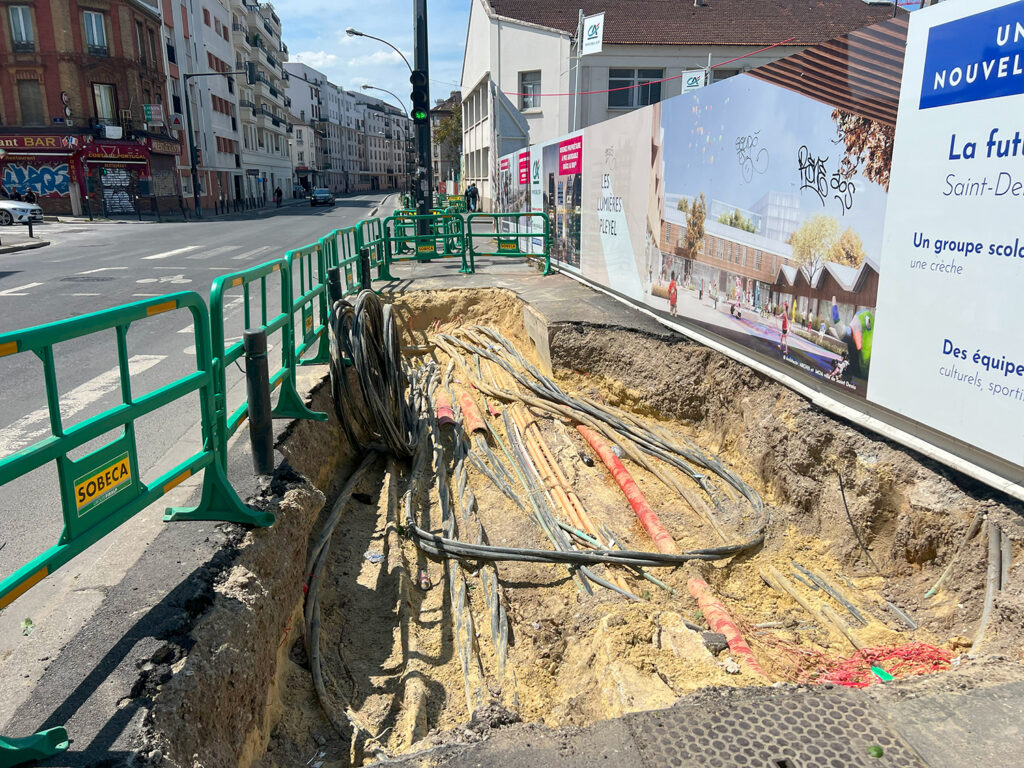
Saint-Denis, a poverty-stricken suburb 9.4 km (five miles) north of Paris, is where the heart of the Olympic Village is being built. The two billion euro project is aiming to bring housing and jobs to the community when the Games end.
Margaux Blanchet, a Paris native, has lived 15 minutes away from Saint-Denis her entire life, but she has never once visited due to its reputation for high crime and illegal migrants, she said.
“It’s a place where there are homeless people and it’s not a very good district,” Blanchet said. “There’s strangers that are illegal immigrants that came here [Saint-Denis] because it’s cheaper than elsewhere like Paris.”
A 2020 report by the Institut Montaigne said Saint-Denis is the poorest department in mainland France, with an individual poverty rate of 28.6% in 2016. The report also said Saint-Denis is one of the 10 departments with the highest unemployment rates in mainland France (ranking ninth in 2019). Among the 40 municipalities in Saint-Denis, 11 have an unemployment rate of more than 20%.
The narrative that the Saint-Denis area is unsafe is not how some locals perceive their community. Saint-Denis resident Stephane Campone says the suburb is a place with rich history which most tourists who visit Paris don’t care to see.
“There is the Cathedral,” Campone said. “It is a beautiful one where all the French kings and queens have their tombs in it. It’s very beautiful, but not very popular.”
Campone also noted that the neighborhood is becoming increasingly populated with young people in their late 20s and 30s because the cost of rent is more affordable compared to the city.
“There are flats here charging $562 a month whereas Paris people are paying up to $1,200,” Campone said. “Half the rent and only a 20-minute commute to the city.”
The negative connotation of Saint-Denis is most times connected to the high population of illegal migrants from African countries such as Chad and Nigeria.
Anais Bonneville, a 22-year-old Parisian, said the French media and Twitter like to push the blame for Saint-Denis’s rundown state onto the illegal migrants, which she said is racially motivated.
“It’s a place that is viewed by the French media as bad and negative,” Bonneville said. “There’s a lot of high crime and drug trafficking there and they linked it with the illegal immigrants to give them a reason to push them out.”
The advocacy for turning Saint-Denis around is nothing new. Parisians hear it all the time from the government, Bonneville said. Due to the government’s inconsistency in delivering on their promises, Bonneville said she won’t believe it until the changes start to actually happen.
A May 2018 parliamentary report took the federal government to task for undeserving the territory, denouncing a “failing Republic” in Seine-Saint-Denis.
Tristan Bayle, who works for the French Destination Management Companies in Paris and in that role provides tours on the ongoing construction of the Olympic Village, said some French refer to Saint-Denis as “neuf trois,” a pejorative of its official department number of 93 (quatre-vingt-treize).
The slang, out of hip-hop culture, indicates the poor conditions of the area, with some comparisons to South Central L.A. in the United States, though Bayle quickly notes that the French have not let their cities deteriorate in the manner of notorious American cities. Referring to the series “The Wire” and the inner-city Baltimore it depicted, Bayle said, “We don’t have anything like that.”
One reason why Saint-Denis is struggling is partially due to the high rent for flats in Paris, Bayle said. The French capital is considered the second most expensive city in the world, according to a recent report by The Economist Intelligence Unit. The market is competitive in Paris and oftentimes there are limited accommodations for those who want to move in.
“It is so difficult to find housing close to Paris because of the prices. Way back they created social housing to load people not too far from Paris,” Bayle said. “The only issue is accumulating layers of poverty on top of layers of poverty.”
Finding drugs at any park or street corner is also the reputation Saint-Denis carries, Bayle said. Police like to monitor the hotspots for drug trafficking in attempts to crack down on drug trafficking.
Bayle was stumped when a group touring the construction site asked for recommendations for a place to eat lunch
“I wouldn’t recommend staying here for very long,” Bayle said. “It’s not a very good area and there are much nicer places to stay and eat. The people here are poor so they don’t have ways to transport goods needed to make this suburb like Paris.”
Gentrification, though controversial, is needed for the redevelopment of poorer areas in France like Saint-Denis, Bayle said. The infrastructure of the Village is aimed to create opportunity and put Saint-Denis back in line with the exemplary environmental goals Paris has, Bayle said.
“We are building on the more abandoned areas so we are creating more housing and not kicking people out,” Bayle said. “ It’s currently poverty on top of poverty, gentrification from the village is personally a good thing.”
Journalist Benoit Lallement, head of the sports and equestrian section of the French newspaper Le Parisien, said the city Olympics committee chose to propose Saint-Denis as the place for the village because they wanted to revitalize it with shops, housing and employment opportunities.
The selection of Saint-Denis is similar to the London Games, where the committee chose Stratford to put the village, Lallement said. Pre-Olympics, Stratford lacked proper infrastructure and was hit by deindustrialization before it was revived during the construction of the Olympic Village. Stratford in 2023 is now an up-and-coming city, where businesses and a younger population are flocking. The Paris Olympic Village construction is projected to transform Saint-Denis into one of Paris’s best-connected areas by 2025.
After two failed bids in 2008 and 2012, the Paris Organizing Committee proposed not building things to show off, Bayle said. The IOC proposed redeveloping Saint-Denis post-Olympics by creating jobs and housing within the Village’s buildings, Bayle said.
“What happens next is 2,500 workers are going to be put into these buildings,” Bayle said. “We’re taking administration workers from the city and bringing life back to Saint-Denis.”
Anna Rosenthial, the international relations manager to Saint-Denis’s Mayor Mathieu Hanotin, said they have already started the process of leasing the apartments to citizens both in and out of the suburb.
“I know there is the bad reputation we have, but people want to live here,” Rosenthial said. “By 2025 we’re hoping to have those buildings filled with workers, students and business owners to change our image for the better.”



